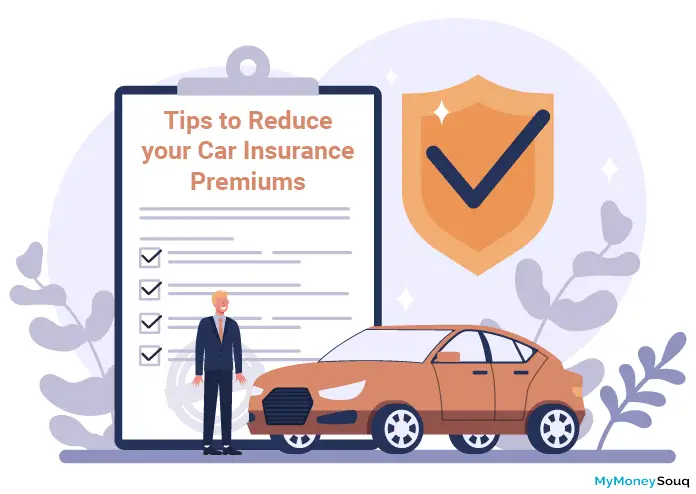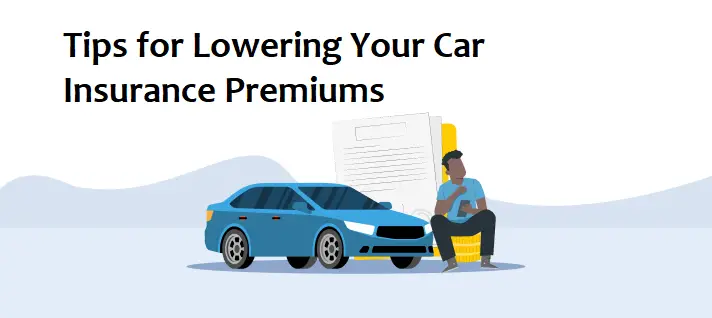Car insurance is a necessary expense for vehicle owners, but that doesn’t mean you have to overpay for coverage. With a bit of research and smart planning, you can significantly reduce your car insurance premiums without compromising on protection. In this comprehensive guide, we’ll explore practical, legal, and effective strategies to lower your car insurance costs.
Whether you’re a new driver or a seasoned one, understanding how car insurance works and how to optimize your policy can help you save money. Let’s delve into the best tips to lower your car insurance premiums and ensure you’re getting the best value.
Understanding Car Insurance Premiums
Before diving into cost-saving strategies, it’s important to understand what a car insurance premium is. Your premium is the amount you pay, usually monthly, semi-annually, or annually, to keep your car insurance policy active. Several factors influence this amount:
- Your driving history
- Age, gender, and marital status
- Vehicle make and model
- Credit score (in some states)
- Location
- Coverage levels and deductibles
- Frequency of claims
Knowing these variables can help you identify where adjustments can be made to lower your premiums.
1. Shop Around and Compare Rates
One of the easiest and most effective ways to lower your car insurance premium is to compare quotes from multiple insurers. Rates can vary widely between companies for the same level of coverage.

Tips:
- Use online comparison tools.
- Get at least three quotes.
- Review policy details carefully—don’t focus solely on price.
2. Bundle Policies
Many insurance providers offer discounts when you bundle multiple policies, such as auto and home insurance, with the same company.
Benefits:
- Simplified billing
- Potential savings of up to 25%
3. Increase Your Deductible
Raising your deductible—the amount you pay out-of-pocket before insurance kicks in—can significantly lower your premium.
Tip:
- Choose a deductible you can afford in case of a claim.
- Common deductible levels range from $250 to $1,500.
4. Maintain a Clean Driving Record
Safe driving pays off. Drivers with no accidents, traffic violations, or claims typically enjoy lower premiums.
Suggestions:
- Avoid speeding and reckless driving.
- Take a defensive driving course for an additional discount.
5. Drive Less
The more you drive, the higher your risk of an accident, which can impact your insurance rates.
Options to consider:
- Carpool or use public transport.
- Ask about low-mileage discounts.
- Consider usage-based insurance programs.
6. Use a Telematics or Usage-Based Insurance Program
Many insurers offer programs that track your driving habits through a mobile app or device.
Advantages:
- Safe drivers may receive substantial discounts.
- Feedback can help improve your driving habits.
7. Improve Your Credit Score
In many states, insurers use credit scores as a factor in determining premiums. A higher score can lead to lower rates.
How to improve:
- Pay bills on time.
- Reduce outstanding debts.
- Regularly check your credit report for errors.
8. Choose the Right Vehicle
Certain vehicles are cheaper to insure than others. Typically, cars that are less expensive to repair or have better safety ratings result in lower premiums.
Tips:
- Research insurance costs before buying a car.
- Avoid high-performance or luxury vehicles if you’re on a budget.
9. Drop Unnecessary Coverage
If your car is older and its value has depreciated, consider dropping comprehensive and collision coverage.
Evaluate:
- Compare the car’s value with the cost of coverage.
- Use resources like Kelley Blue Book to estimate value.
10. Ask About Discounts
Many insurers offer a variety of discounts that you may qualify for without realizing.
Common discounts include:
- Good student
- Military or veteran
- Safe driver
- Multi-vehicle
- Employer or professional organization affiliations
11. Pay Your Premium Annually or Semi-Annually
Paying your premium in one lump sum can often be cheaper than monthly payments.
Benefits:
- Avoid installment fees.
- Potential discount from the insurer.
12. Review Your Policy Regularly
Life circumstances change—so should your insurance. Reviewing your policy once a year ensures you’re not overpaying or underinsured.
Check for:
- Vehicle changes
- Address updates
- Driving status (e.g., working from home)
13. Avoid Small Claims
Frequent claims, even minor ones, can cause your premium to increase.
Consider:
- Paying for minor damages out-of-pocket.
- Only filing claims for significant losses.
14. Choose Your Coverage Limits Wisely
While it’s crucial to have adequate protection, excessively high coverage limits can increase premiums.
Balance is key:
- Evaluate your personal risk tolerance.
- Use tools or an agent to calculate appropriate limits.
15. Install Safety and Anti-Theft Devices
Equipping your vehicle with features like airbags, anti-lock brakes, or alarm systems can lower insurance costs.
Examples:
- GPS tracking
- Steering wheel locks
- Dash cams
16. Consider a Pay-Per-Mile Plan
If you’re a low-mileage driver, pay-per-mile insurance may offer significant savings.
Ideal for:
- Remote workers
- Retirees
- Occasional drivers
17. Stay with the Same Insurer
Loyalty discounts are common. The longer you stay with a company, the more likely you are to qualify.
Ask about:
- Long-term customer discounts
- Renewal bonuses
18. Remove Unnecessary Drivers from Your Policy
Having high-risk drivers on your policy can raise your premiums.
Tip:
- Only list those who regularly drive your vehicle.
19. Relocate (If Practical)
Your ZIP code plays a significant role in your premium. High-crime or densely populated areas often lead to higher rates.
If you move:
- Notify your insurer immediately.
- Compare rates in the new area.
20. Work with an Independent Agent
Independent agents can help you compare multiple providers and find the best deals.
Advantages:
- Personalized advice
- Access to a wide range of insurers
Final Thoughts
Lowering your car insurance premium doesn’t require drastic measures—just smart, informed decisions. By taking the time to review your policy, drive responsibly, and explore all discount options, you can significantly cut costs while maintaining reliable coverage.
Always ensure that the changes you make do not leave you underinsured. Adequate car insurance not only protects your vehicle but also your financial well-being in case of an accident or other unexpected event.
Stay informed, ask questions, and revisit your car insurance needs regularly. By applying these tips, you can enjoy peace of mind on the road without overpaying for protection.
If this article was informative also checkout: Small Business Insurance
also checkout: Click Here



